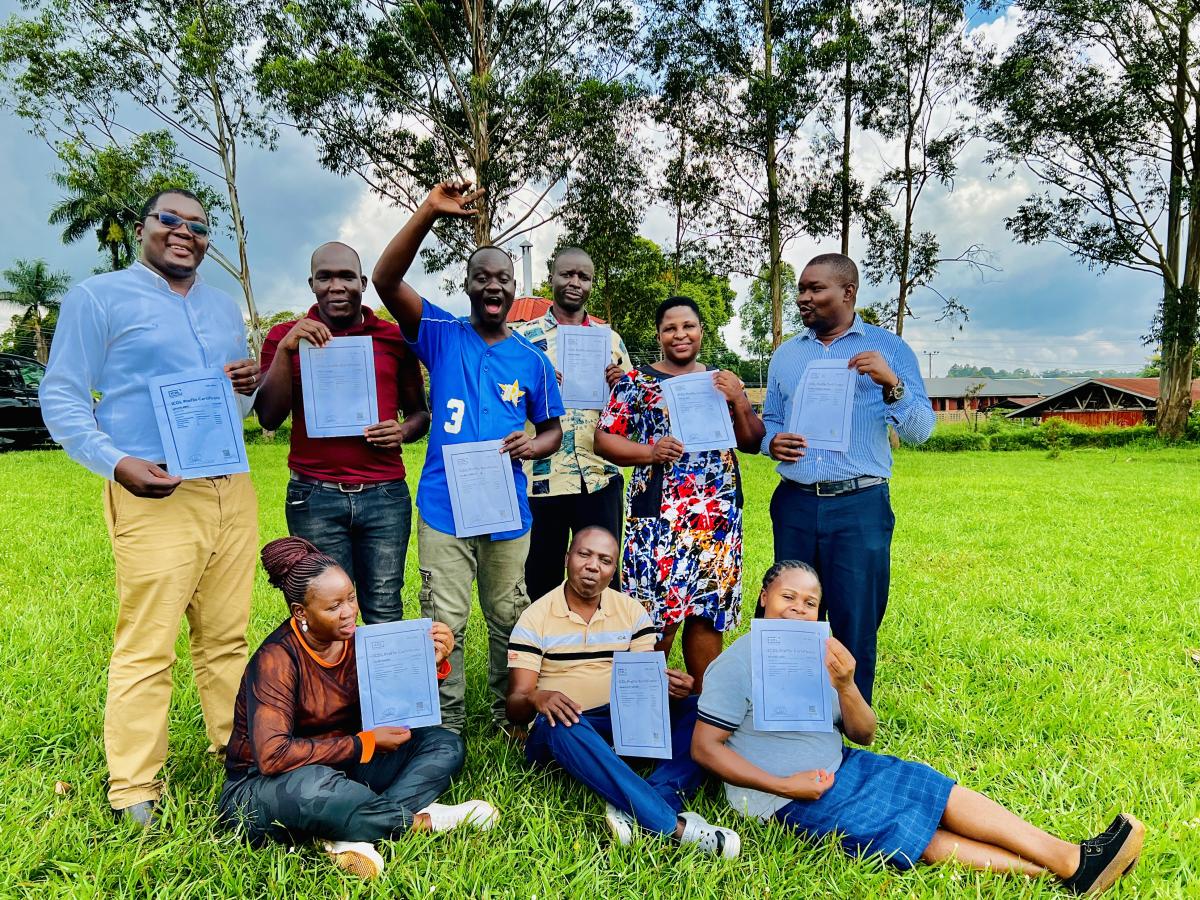Enabel enhances digital literacy for health educators in Uganda through ICDL training
Attaining comprehensive education and training for health service delivery has invariably been a long game. One of the numerous hiccups has been the lack of a policy hence no framework for sufficient training of students at certificate and diploma levels. This insufficient skilling has often manifested in the rough-hewn healthcare afforded by nurses, midwives and clinical officers to patients. The WeTrain4Health project implemented by the Ministry of Education & Sport and Enabel in Uganda, which seeks to improve the training of students in health institutions, is a one of the responses to the challenge of inadequate healthcare service delivery, targeting the issue at its root.
In March this year, we conducted an ICT and pedagogy needs assessment which highlighted a clear gap in digital literacy among tutors. Many were experts in the content area but less confident with digital tools and delivery of training to students. Of the 43 tutors assessed, only 1 tutor in our health training institutions was competent in use of ICT for teaching/learning whereas 6 could not find required information online and the tutor required support on how to make a PowerPoint presentation.
As part of the project actions, a four-day training to boost digital skills among health educators in the fundamental International Computer Driving Licence (ICDL) course was conducted at St. Simon Peter Vocational Training Institute, Hoima. Participants were from the three partner institutions - Hoima School of Nursing and Midwifery, Jinja School of Nursing and Midwifery and Fort Portal College of Health Sciences.
The training specially aimed to equip the HTI (Health Training Institutions) staff with skills in online collaboration, teamwork, cyber security, ICT in Education among others. With the training of these staff representatives, they will cascade the training to their different institutions. Steve Mwanje, the trainer from St Simon VTI, considers this training essential and is confident that the technology will help the educators provide better education to their teams. “It’s exciting to see them gain confidence as they learn. This training is just the beginning, the real impact will be seen when they take these skills back to their classrooms,” says Steve.
Haron Omara from Jinja School of Nursing confesses that from the training, he learnt that Computer was more practical than what he thought and that the training added to knowledge he thought he already knew.
“This training is a game-changer. It’s not just about using computers; it is about improving how we teach and prepare our students. When our tutors are comfortable with digital tools, they can make learning more interesting and relevant,” said Loy Katali, a participant from Hoima School of Nursing and Midwifery.
The optimism among the participants was palpable, and Ambrose Okello, the activity lead at Enabel noted that the tutors are good at their work but emphasized that digital skills are critical and that the tutors need the tools to integrate technology into their teaching, which this training will equip them with. Going forward, further trainings will be conducted to ensure that tutors in the respective health training institutions are equipped with digital skills which will be cascaded down to nursing and midwifery students to ensure sustainability of skills transfer within the institutions.
Laatste nieuws van dit project
Geen nieuws

